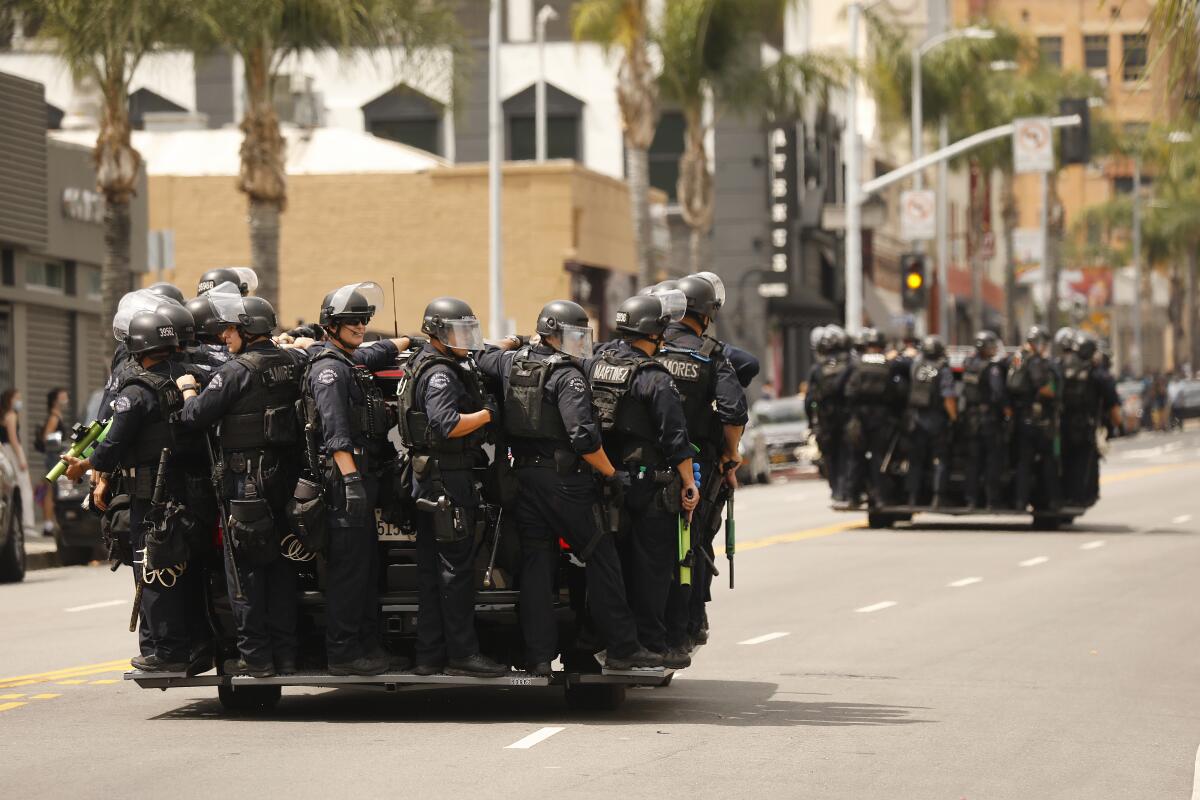For more than a decade, Angelenos could pull up an online map showing where crimes occurred, arrests were made, and police used force across Los Angeles. It was a window into citywide policing activity, imperfect but essential for accountability. But now that window has slammed shut.
The Los Angeles Police Department has stopped uploading data to its public crime map and is refusing to release the underlying records, citing fears that disclosure could cause “misguided public policy discussions or unjustified public panic.” The LAPD made that claim in denying a California Public Records Act request from LAist, which sought access to the department’s COMPSTAT data, detailed internal records that track crime reports, use of force, and other key indicators.
The denial, issued Oct. 30, marks the first known time LAPD has refused to share its COMPSTAT data on grounds that public understanding might be flawed. The department’s refusal stands in stark contrast to other jurisdictions in Los Angeles County, which continue to upload their crime data to the regional database.
First Amendment Coalition legal director David Loy called the LAPD’s argument extraordinary and dangerous. “They don’t have a right to withhold the data from the public just because they’re afraid that people will misconstrue it,” Loy said. “That argument would destroy the entire Public Records Act.”
Under California law, government agencies can withhold records only under narrow exemptions, such as for active investigations or confidential personnel matters. The LAPD is instead relying on the law’s “catchall” exemption, claiming that withholding the data better serves the public interest. Loy warned that this reasoning, if allowed to stand, would let agencies conceal any information that doesn’t fit their preferred narrative. “The city probably wants to tell its own story,” he said, “but we, the people, have a right to the raw data so we can decide if we believe the story about crime, or garbage collection, or zoning, or anything else the government does.”
Mayor Karen Bass’s office declined to comment on the department’s decision.
LAPD’s assertion that releasing its own data could lead to “public panic” rings hollow in light of its history of data mismanagement and manipulation. In 2015, a Los Angeles Times investigation uncovered widespread misclassification of crime reports that had artificially deflated city crime rates for years, a finding later confirmed by the department’s own inspector general. In 2020, a separate audit revealed that LAPD officers had falsified gang designations in a statewide database, wrongly labeling innocent residents as gang members. Then, in 2021, the department failed to meet the FBI’s deadline to adopt the national incident-based reporting standard, a lapse that delayed citywide data reporting for months.
Even after the long-overdue transition to the new system in 2024, LAPD records have remained riddled with structural errors and duplicate entries. For communities long concerned about police violence and misconduct, the department’s decision is a major blow to public oversight.

